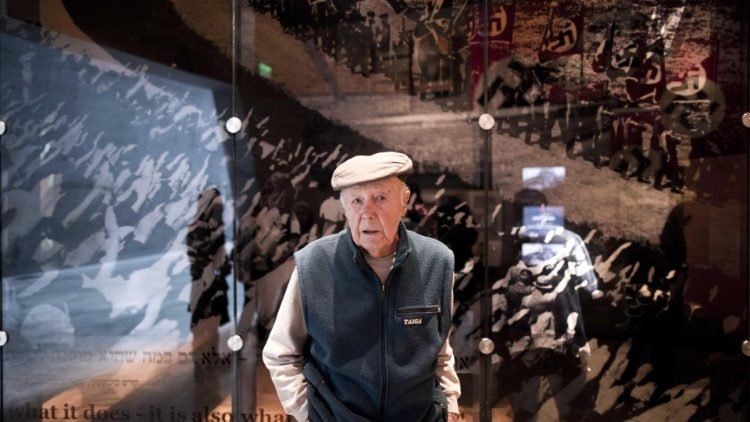An Israeli Holocaust survivor who was among the last known Jewish fighters from a famous battle during World War Two against German Nazis in occupied Poland has died. Simcha Rotem, who fought in the Warsaw ghetto uprising, passed away at the age of 94 prompting tributes paid to the man regarded by many as a Polish war hero.
By Stefan J. Bos
Simcha Rotem, also known as Kazik, was one of the Jewish partisans who rose up against the Nazis during World War Two. His fighting began when the German Nazis started mass deportations of mainly Jews from the Polish capital Warsaw to Nazi death camps.
Thousands also died in what became known as the Warsaw ghetto uprising, named after the ghetto where many Jews were held against their will while awaiting deportation to almost certain death. Others died in the ghetto because they were killed there or died of hardships.
But amid the misery, Rotem helped scores of fighters escape through the drainage system.
Rotem then returned to take part in – and survive – the 1944 Warsaw Uprising led by Polish resistance fighters. Rotem died in Jerusalem on Saturday.
He once suggested it was a miracle that he survived these harsh circumstances.
Getting through flames
Rotem explained that he thought the Nazis, would continue to enter the ghetto and that there would be face to face combat. “We’de kill as many as our end would be obvious. But they did something else. They retreated and carried out the extermination from outside. Against this, we had no defense. Within three or four days the ghetto was in flames,” he recalled.
Rotem later added: How we managed to get through I have no idea.”
Israel’s Holocaust memorial center Yad Vashem, which released the video footage, said it mourns the death of the Holocaust survivor. Israeli Prime Minister Benjamin Netanyahu added in a statement: “His story will be with our people forever.”
Rotem was 15 when the Nazis invaded Poland in 1939. Born in 1924 in Warsaw, Poland, he was the eldest of four children. At the age of 12, he joined the Zionist youth movement Hanoar Hazioni, according to Holocaust experts.
Wounded as a young man
With the outbreak of World War II in September 1939, Rotem’s brother, Israel, and five other members of his family were killed when the Germans bombed his home, destroying it, and leaving Rotem wounded.
After the incarceration of the Jews of Warsaw in the ghetto, Rotem’s parents sent him to live with relatives in a village, but he soon returned to join what became one of Poland’s most famous uprisings.
That struggle inspired many to fight for ending the war and the related Holocaust in which some six million Jewish people and others the Nazis didn’t like were killed.
Israeli President Reuven Rivlin thanked Rotem and added: “We promise to try every day to be deserving of the description ‘human’.”



